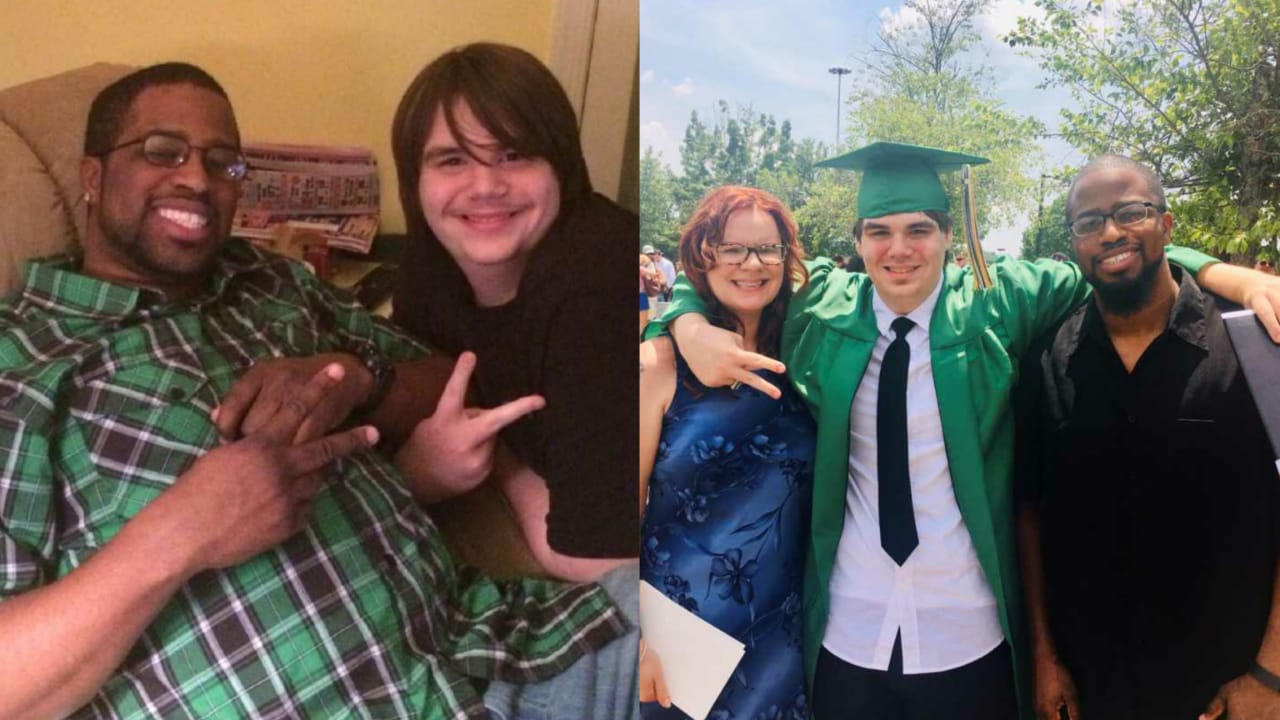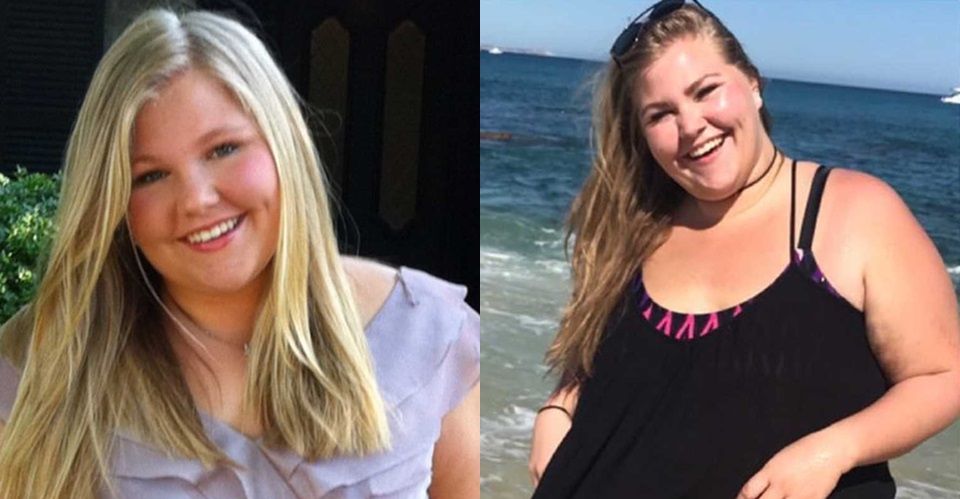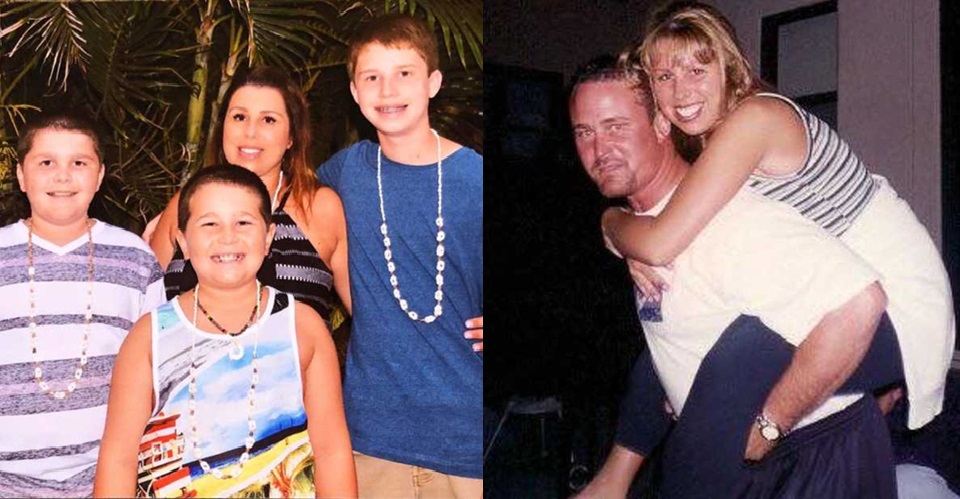I met Sgt. Aaron Evans, who was stationed at Tobyhanna Army Depot in Pennsylvania at the time.
I worked at a nearby hospital, and at the time, I was a divorced mother of two boys, sharing custody with my ex-husband.

Aaron was going through a difficult divorce of his own. We started as friends, talking for hours about our childhoods and how we grew up. He was from New York City, a true city man who had never been hiking, so I introduced him to the trails. Working in mental health, I noticed signs of anxiety in him. He had served in combat during Operation Iraqi Freedom, and though we only spoke about it briefly, I knew it had left its mark.
Over the year we knew each other, our friendship grew. Then one day, Aaron told me he had feelings for me. I laughed and told him he didn’t want someone with my kind of baggage. I was living with Lupus, caring for two energetic boys, and my oldest, Austin, was diagnosed with autism.
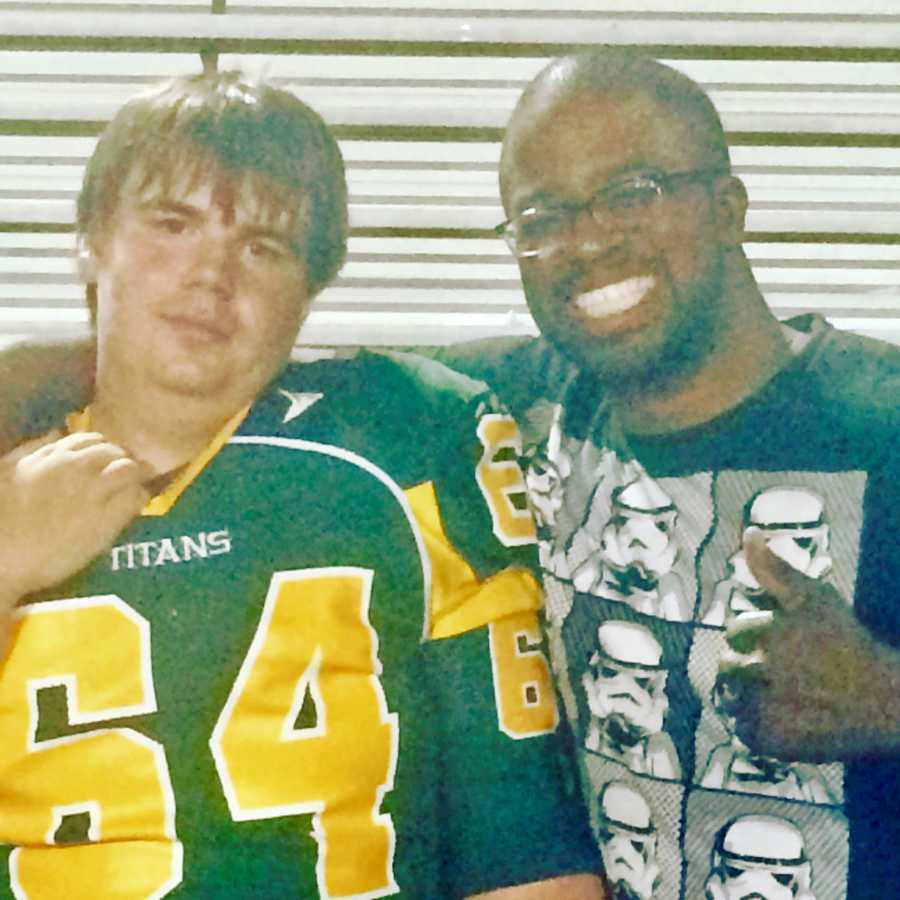
But Aaron didn’t hesitate, he said he’d like to meet them. When it came time to introduce Aaron, I asked my ex-husband if we could all have dinner together with the boys.
I trusted Aaron’s character completely, so I didn’t mind my ex being there. The boys were peeking out the window as Aaron, tall and stoic in his uniform, walked up the driveway. “Look, Dad! He’s in the Army!” my youngest, Maverick, shouted excitedly.
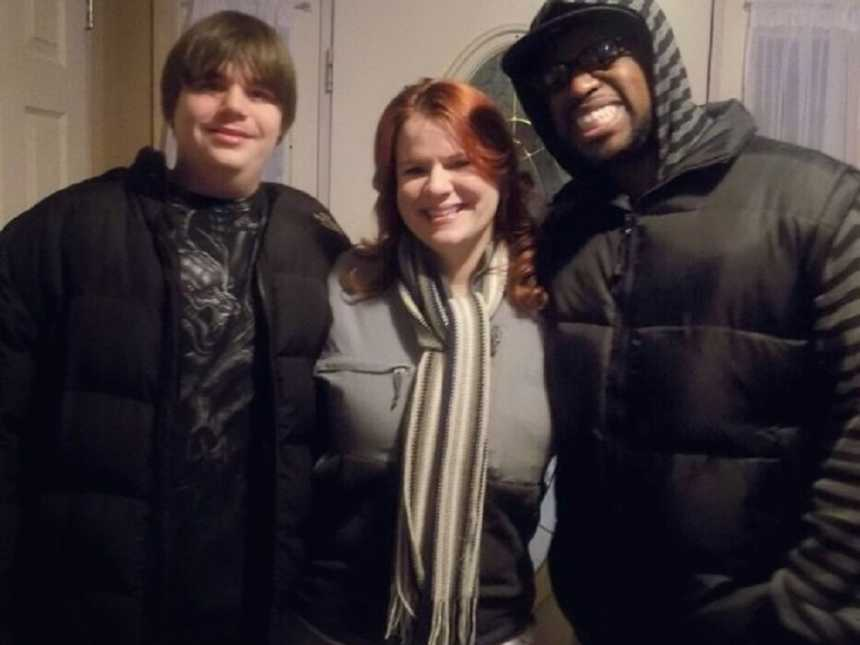
“Did you know he’s black? Like, really black?” Austin quickly told his brother to be quiet, adding, “That man is a soldier.”
At dinner, Austin, with his blunt honesty, asked Aaron if he had killed anyone in war. I tried to hush him, but Aaron calmly replied, “No, but I know bullets can kill.” Moments later, Austin asked if he liked video games. When Aaron said yes, Austin grinned and declared they could be friends. That was the beginning of their bond. A year later, Aaron’s time at Tobyhanna ended, and we faced a tough choice.
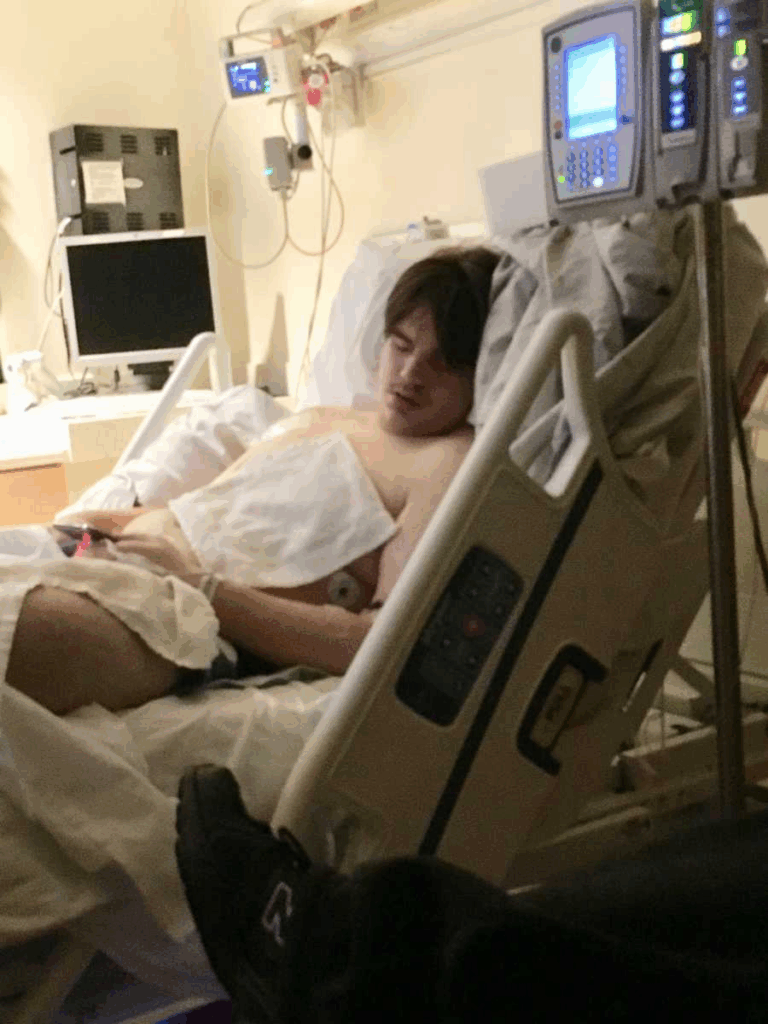
My Lupus had worsened, and I’d developed Raynaud’s Syndrome. My doctors suggested that I relocate somewhere with a warmer climate.
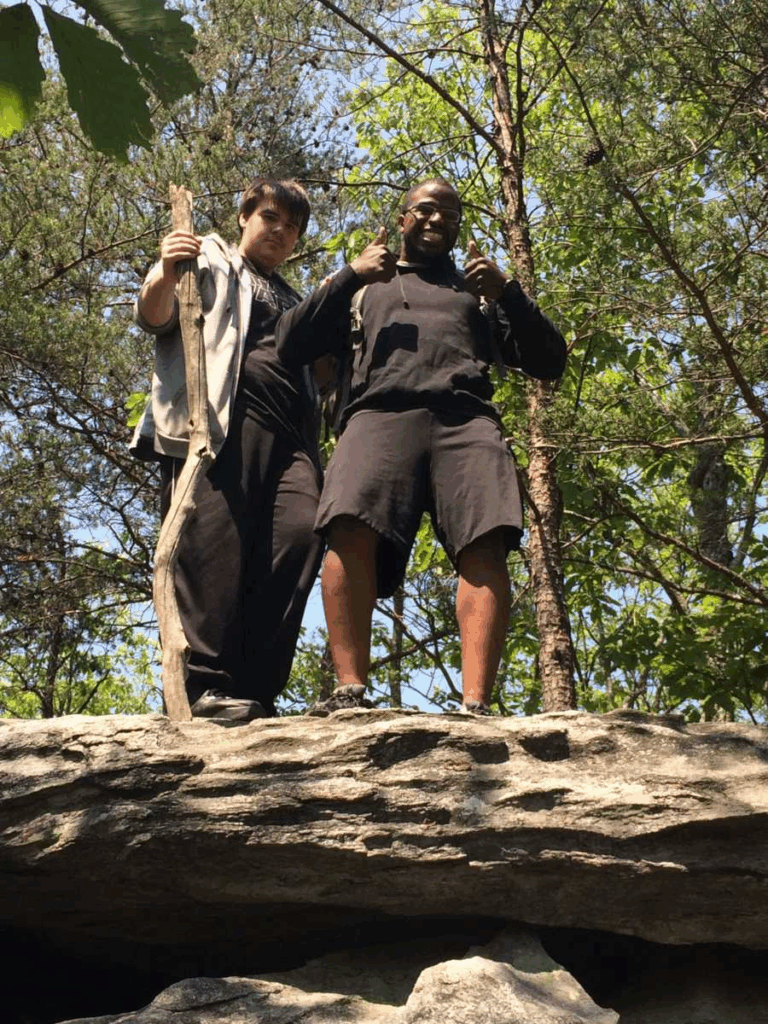
Aaron was out of the military and ready to settle somewhere. We decided on North Carolina. The boys were given the choice, Maverick chose to stay with his dad, but Austin wanted to come with us, saying, “We can be a family.”
Austin’s father had never accepted his autism diagnosis, even after multiple doctors confirmed it. Over the years, Austin often felt left in the shadows compared to Maverick, who hit every milestone early and raced quads by age three. Austin longed for a dad who would enter his world, talk about Star Wars, and play video games.
Aaron became that person. Both Aaron and Austin found comfort in video games, Aaron as an escape from PTSD, Austin as a safe space where the social pressures of high school didn’t exist. Before our move, Austin had endured cruel bullying, including taunts about his body after a medication side effect. He eventually needed a bilateral mastectomy, and Aaron was there alongside me, Maverick, and Austin’s dad on surgery day.
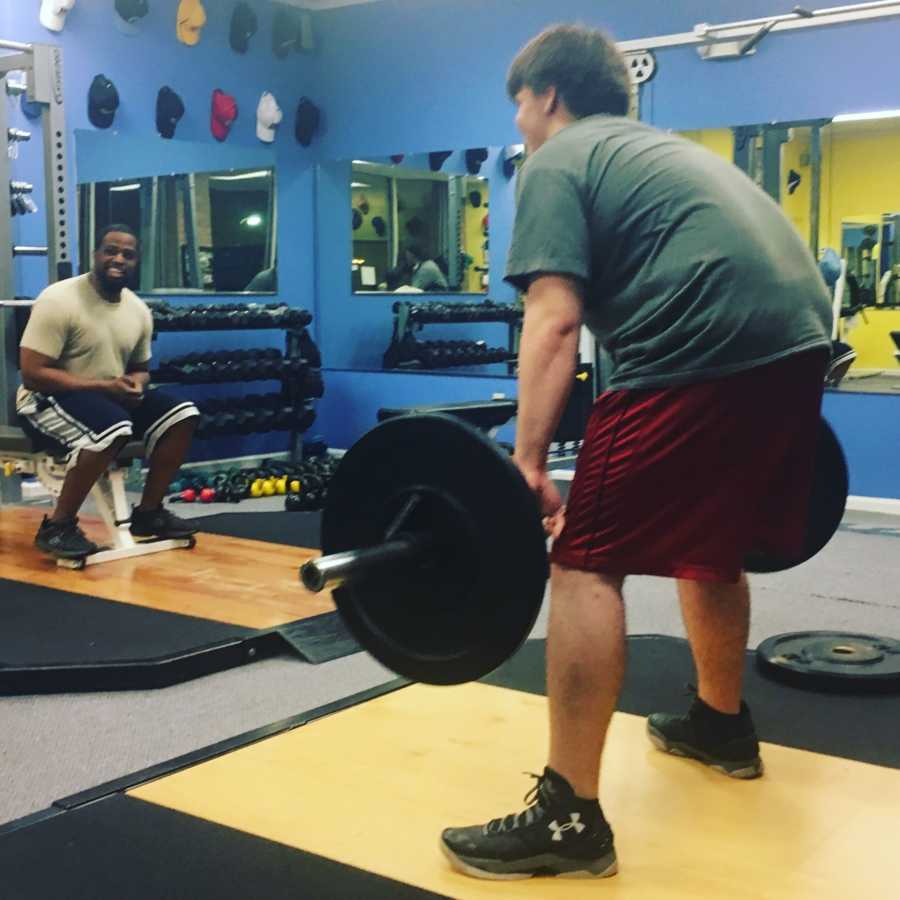
We moved to Winston-Salem in August 2015. Austin entered a far more diverse school, and while many might have struggled, he didn’t see color the way others did. On his second day, three boys on the bus asked if he used the N-word. He said no and explained that his stepdad was Black. “You’re good,” they told him.
But racism followed us, in subtle and not-so-subtle ways. Restaurants asked if our check was together or separate. In rural Pennsylvania, Aaron had been pulled over for driving with Austin, the officer asking Austin if he was “okay.” Even in the South, I realized prejudice doesn’t disappear, it just wears different faces. Austin joined the wrestling team his sophomore year, and Aaron never missed a match, cheering from the stands. When someone remarked that Aaron couldn’t be Austin’s father because he was white, I answered simply, “The title of father doesn’t come with a color.”
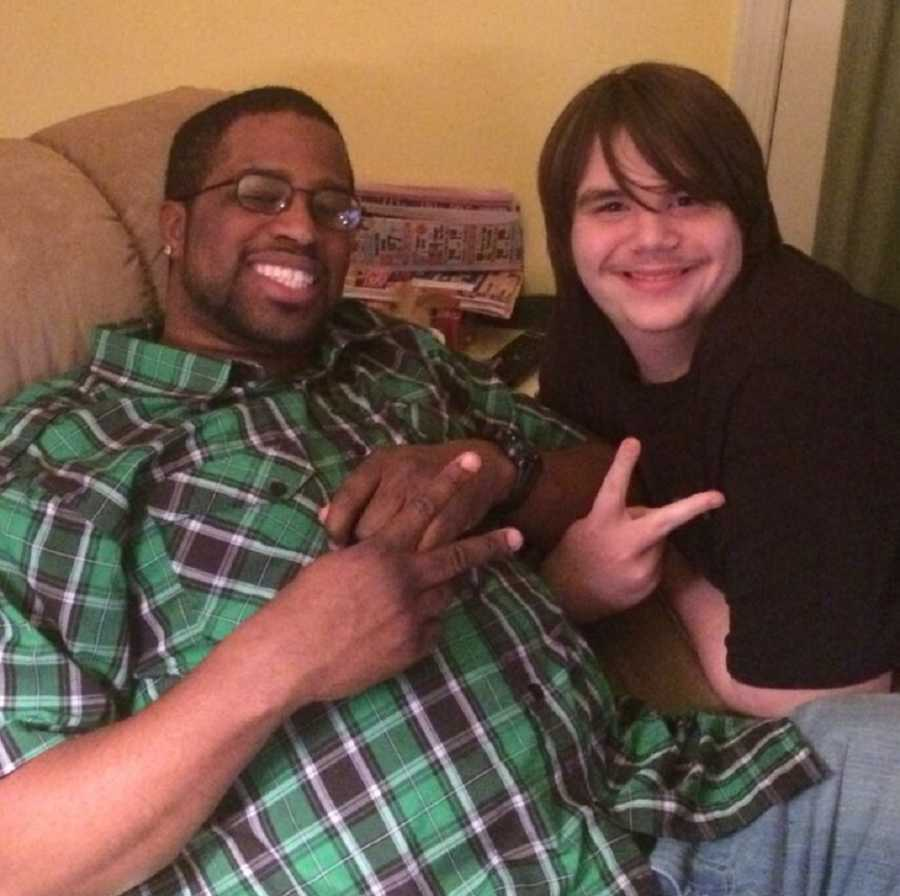
Aaron was there through everything, football games, wrestling meets, first dates, and long talks. Austin’s birth father’s calls became rare, but Aaron’s presence never wavered. Even after Austin graduated and faced anxiety about his future, Aaron stood by him. They share a trust I’ve rarely seen. Sometimes I come home to find them deep in a video game, their shared safe haven.
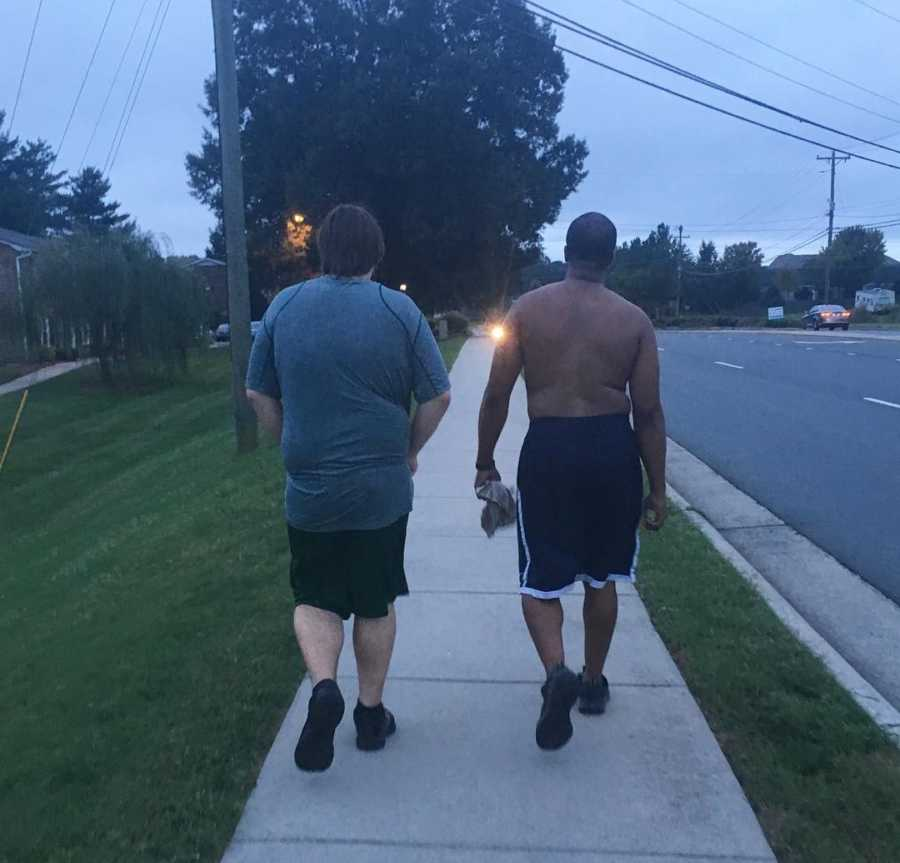
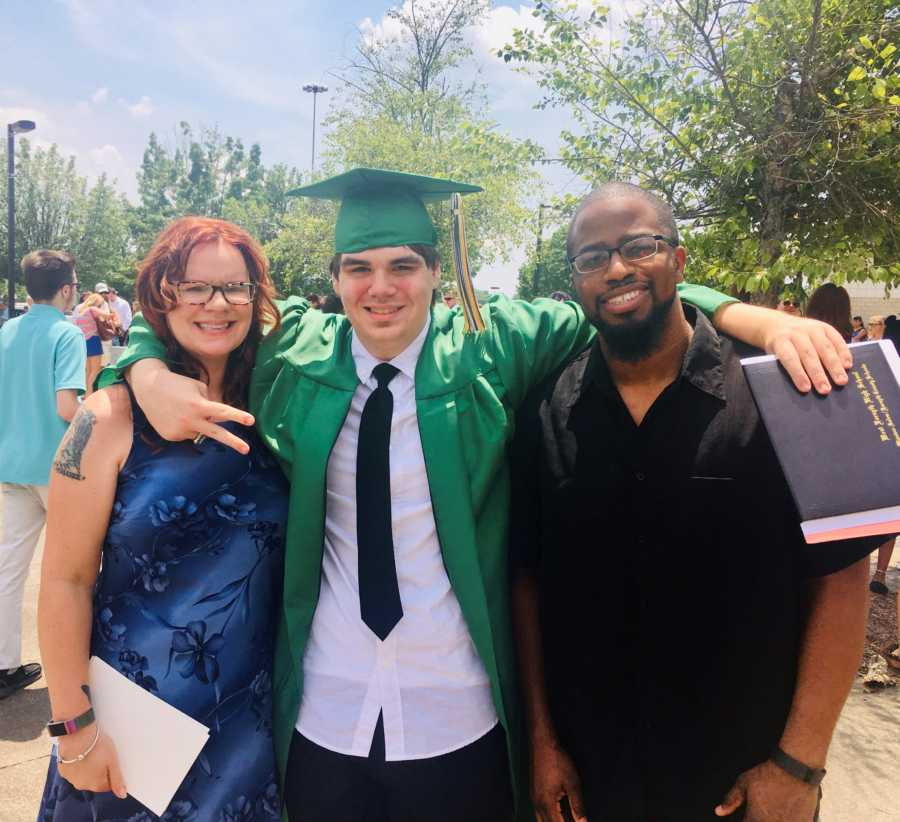
I know that when Aaron came into our lives, Austin was searching for acceptance and someone who truly understood him. What he found was a dad, not by blood, not by race, but through love, patience, and respect. Their bond has shown me that family is built by the people who choose to stay, love without conditions, and walk alongside you through every high and low.
